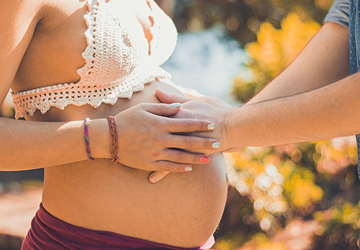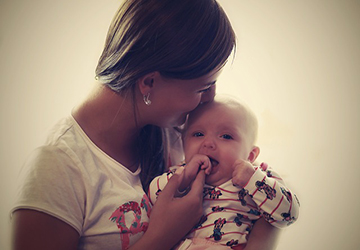How to Deal with Childbirth Trauma
What is a birth injury?
Birth trauma is the pain a mother suffers during or after childbirth. Trauma can destroy the body but often affects the mind and emotions.
Birth trauma doesn't just happen during labor and delivery; it can also be related to how you feel abandoned afterward as a mother. After delivery, sequelae of birth trauma may occur occasionally and persist for some time.
During labor, you may feel scared, powerless, or rude. After birth, there may be shock, regret or numbness, anxiety, or panic attacks.

Is dystocia the cause of trauma?
Labor is perceived as a difficult or uncomfortable experience for various reasons. Some experience labor complications that most would consider traumatic, such as problems with midwifery, perineal tears, or managing labor pains.
Others may experience having a baby born in a typical fashion but feel unsatisfied or frustrated. This can happen if they feel neglected, cannot stop what is happening, or are not treated with respect or dignity. Some people need time to process their inexperience with fertility.
What are the effects of trauma?
Every parent experiences the effects of challenging childbirth differently. Some new parents report struggling with low self-esteem, guilt, inadequate or failing relationships with their children, and relationship problems.
Anxiety, postpartum depression, and pregnancy or childbirth phobias are some of the experiences.
According to the Birth Trauma Association (BTA) (PTSD), Birth Trauma is short for Post Traumatic Stress Disorder.
How do I recover from a traumatic childbirth?
Here are some ideas for activities you can try to help you push yourself forward. It is important not to suppress your emotions in any way. After having a baby, many parents feel they need to "put on a happy face" because it's such a big event.
However, the realities of parenting are often perceived to be more complicated. Don't bear or downplay your feelings peacefully when you feel down or down. You can overcome your emotions by accepting them as they are. Here are some ways you can recover:
Don't blame yourself:
After a difficult childbirth, many parents feel like a failure. They may think that their body has somehow let them down or that they failed to deliver quickly. Partners may feel they are dying for their spouse by not providing enough support or alleviating their pain.
As a result, some feel they have failed the "first test" of parenthood. But whatever happens, is not your responsibility. Every woman's childbirth process is unique; some are trickier than others. Trust that you have done your best for yourself and your child and will continue to do so.

Talk to a professional
If you are concerned about how you or your partner feel, talk to your midwife, healthcare provider, or doctor. They can discuss the situation with you and advise on how to proceed. You may be referred to a psychotherapist who can help you.
The nature and severity of your symptoms will determine your treatment. Talk therapy, cognitive behavioral therapy (CBT), and medication are all possible treatments.
You won't be judged if you express your feelings to someone. After a baby is born, it's common for both parents to suffer mental health damage, and your health professional knows it.
Talk to someone you trust
Unfortunately, other people's responses to your experience may need to be more helpful. Labor is expected, so it's often considered "normal." This may explain why some people have difficulty understanding why certain things cause emotional distress or trauma to others.
Most people are friendly and willing to help. But they may say the wrong thing if they don't understand how you feel. For example, well-intentioned statements like "at least it's over now" or "see how you behave" can be made. But they may make you feel like you're overreacting. Focus on someone who can help you and who you can connect with what you are going through. This could be a friend, family member, or partner.
Stop comparing yourself to others.
Other people's birth stories can also irritate or irritate you, especially if they go well. Be gentle with yourself; these emotions are normal.
While this can be complicated, try not to judge your situation by that of others. As a result, you may experience sadness, stress, and resentment.
Instead, pay attention to how you feel about what happened to you and how you can move forward constructively.
Another child
Having already had a difficult labor can affect your feelings about being pregnant again. If you're trying to have another baby but still have emotional problems, it's a good idea to talk to your doctor before trying to have a baby. This gives you another opportunity to discuss your previous pregnancies and how you can improve your future pregnancies.
Of course, pregnancies don't always go as planned. Or occasionally, postpartum women find that their prenatal worries are more significant than they thought. Everyone experiences these fears differently.
Diploma
Some women fear childbirth or want to terminate their pregnancy. In any case, tell your doctor or midwife how you feel as soon as possible. They will do their best to give you non-judgmental advice, put you at ease, or refer you to someone who can help, such as a B.-trained mental health midwife.
Related Article
If You Like Sultry Style


